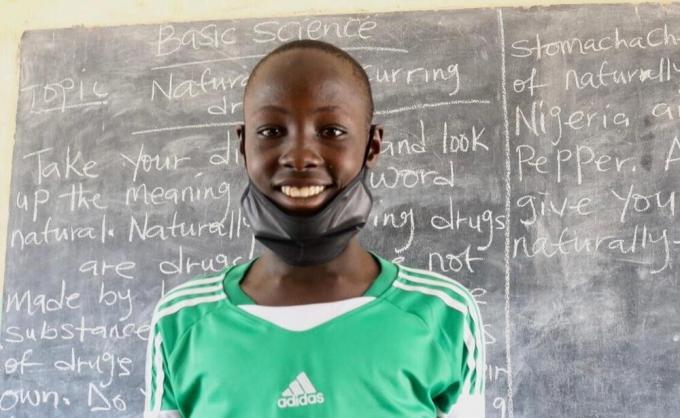PRESS STATEMENT: “Reopen Schools Based on Science But Not Second to Business" warns Save the Children
 03, August, 2020, Kigali - In a response to the recent article in the New Times Rwanda: “Should schools be allowed to reopen in September? Save the Children Rwanda welcomes the disclaimer from the Prime Minister while appearing before parliament that schools reopening would only be guided by science.
03, August, 2020, Kigali - In a response to the recent article in the New Times Rwanda: “Should schools be allowed to reopen in September? Save the Children Rwanda welcomes the disclaimer from the Prime Minister while appearing before parliament that schools reopening would only be guided by science.
The leading child rights organisation, however, cautions that schools reopening should not be secondary to other businesses and services re-opening. “The decision to reopen schools is not straightforward” says Maggie Korde, Director of Save the Children Rwanda, “But it should be a priority. If a society is able to make safe provision for restaurants, shops, beauty services for example, the same planning and thought can be put in to ensuring continuation of children’s education.”
Approximately 1.5 billion children’s education has been disrupted globally because of school closures - and a further 262 million children were out of school before the pandemic. In Rwanda, there is over 3,6 million students out of school, of whom 500,000 belong to primary one. This number is expected to increase by September when we will be receiving both already registered students and newcomers.
The impact of schools closure far transcends education with additional ramifications for children’s health, nutrition and protection. These challenges are exacerbated by the impact of the pandemic on the global and localized economy. For example, parents losing their livelihoods and the increase stressed within a household.
Therefore, there are huge protection risks to children being out of school. At the same time, there’s emerging (strong) science that indicates that children may not be strong spreaders of the disease in articles such as How likely are kids to get Covid-19? Scientists see a ‘huge puzzle’ without easy answers. By Helen Branswell, June 18, 2020. https://www.statnews.com/2020/06/18/how-likely-are-kids-to-get-covid-19-scientists-see-a-huge-puzzle-without-easy-answers/. – which states that “There is some evidence that kids are less likely to catch the virus and less likely to spread it, but it’s not clear exactly how strong that evidence is.” … “The World Health Organization does not currently see clear answers in the data that have been collected to date.” …“But teasing out whether kids are as likely to catch the virus and spread it has been exceedingly difficult at a time when children are spending far less time mixing with others than they normally do”.
Paulin Ndahayo, Education Program Manager for Save the Children Rwanda added “We acknowledge that schools re-opening may lead to a spike in cases in certain contexts. Therefore a cautious approach is warranted and Save the Children’s core message is that children must return to school only when safe to do so.”
However there is a lot we can do, the organization believes, to increase the safety of educational establishments before re-start, including activities outlined the Save the Children’s Cluster/Inter-Agency Standing Committee mandated Safe Back to School Guide and Framework for school reopening.
Save the Children has also released a global Save our Education back to school campaign. They are calling for a global education emergency plan that ensures a) all children continue to learn while schools are closed through inclusive distance learning b) every child is supported to return to school when it’s safe to do so c) Governments and donors invest in education now so we can build better education systems for the future.
“Our position is to recognise the balance needed here” concludes Ms Korde, “We see the risks of reopening but we also take seriously our mandate to be the voice for children. And right now we are hearing from them and from all the evidence, that they desperately need their education back”
 Rwanda
Rwanda